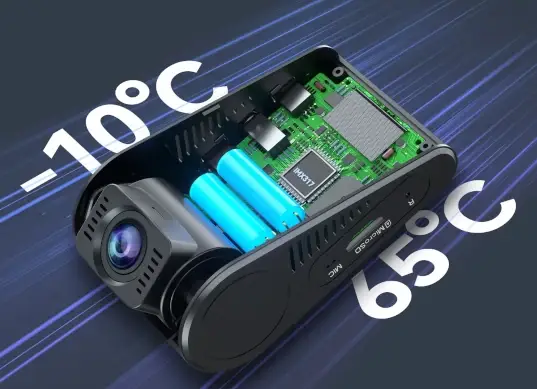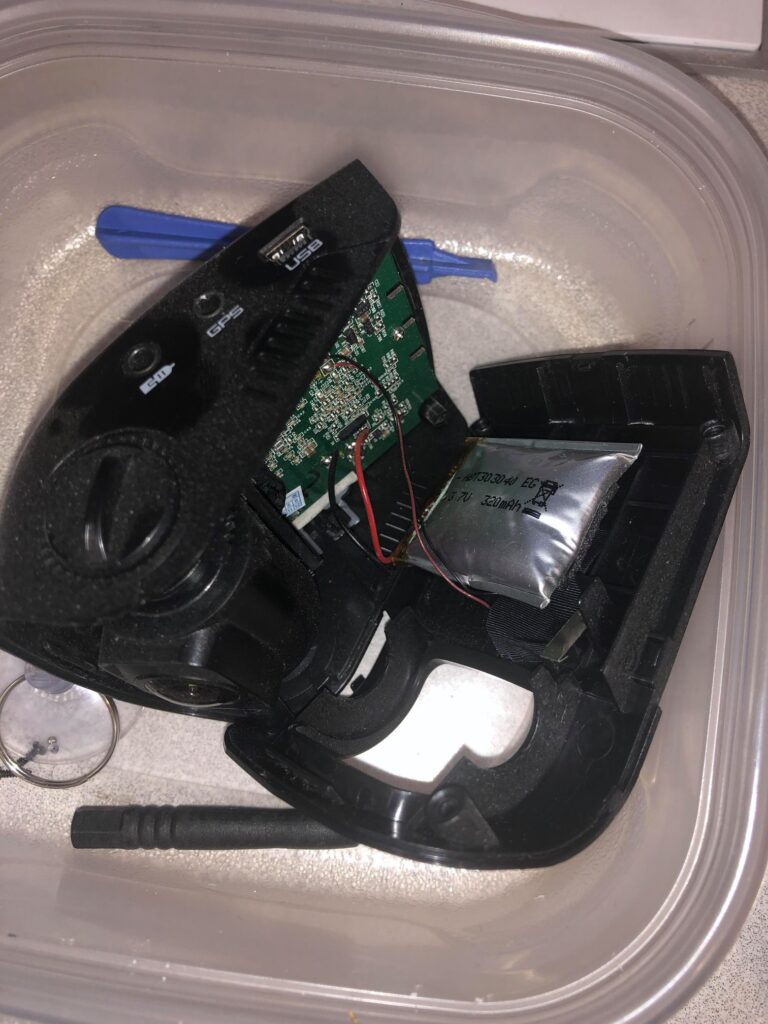Supercapacitors vs. Batteries in Dash Cams: Why This Tiny Component Matters More Than You Think
That Scary Moment Every Dash Cam Owner Dreads

It was 38°C in Johannesburg when Mark’s dash cam failed. He didn’t notice until after the collision – when he reached for evidence and found his camera had shut off during the crash. The culprit? A swollen lithium-ion battery that couldn’t handle the summer heat.
This isn’t just bad luck – it’s a design flaw plaguing battery-powered dash cams. But there’s a better way: supercapacitor-powered dash cams.
The Hidden Danger in Your Dash Cam
Most drivers never think about their dash cam’s power source – until it fails them. Traditional lithium-ion batteries:
🔥 Expand and fail in heat (like your parked car in summer)
❄️ Lose capacity in cold (-10°C can cut power by 50%)
📉 Degrade quickly (30% capacity loss in 1-2 years)
💥 Can rupture in extreme conditions
Supercapacitors solve all these problems while being more reliable, safer, and better suited for vehicle use.

How Supercapacitors Work (Without the Risks)
Unlike batteries that store energy chemically, supercapacitors:
Store energy electrostatically between conductive plates
Charge/discharge instantly with no chemical reactions
Handle extreme temperatures (-40°C to 85°C)
Last 10-15 years with no performance loss
Think of them like a high-speed energy reservoir rather than a slow chemical battery.
5 Reasons Supercapacitors Dominate for Dash Cams
1. Heat Resistance That Saves Your Evidence
Batteries: Fail above 60°C (common in parked cars)
Supercapacitors: Work perfectly up to 85°C
Real-world test: VIOFO’s supercapacitor dash cams survived 8 hours at 80°C with no damage – a death sentence for lithium batteries.
2. Cold Weather Reliability
Batteries: Struggle below -20°C (common in winter)
Supercapacitors: Function flawlessly down to -40°C
Critical for:
✔ Canadian winters
✔ Early morning commutes
✔ Mountain driving
3. Instant Power for Critical Moments
When an accident happens:
Battery cams: May miss 1-2 seconds while booting
Supercapacitor cams: Save footage instantly
This difference can decide insurance claims.
4. Long-Term Reliability
| Metric | Battery Cam | Supercapacitor Cam |
|---|---|---|
| Lifespan | 2-3 years | 10+ years |
| Charge Cycles | 500-1000 | 1,000,000+ |
| Maintenance | Replace periodically | Zero maintenance |
5. Safety You Can Trust
Battery risks: Swelling, leaking, fire (especially in crashes)
Supercapacitors: No flammable materials, no explosion risk
The Only Downside (And Why It Doesn’t Matter)
Supercapacitors can’t power the camera long-term like batteries can. But this is irrelevant because:
Dash cams only need 30-60 seconds of backup power to safely shut down
They get continuous power from your car while driving
Parking mode uses your vehicle’s battery (via hardwiring)
How to Spot a Quality Supercapacitor Dash Cam
Not all supercapacitors are equal. Look for:
✔ Japanese or US-made components (higher quality control)
✔ Minimum 5V 1F rating (for sufficient backup power)
✔ Reinforced power management (protects against voltage spikes)
Top models meeting these standards:
VIOFO A229 Pro
BlackVue DR970X
Thinkware U3000
Real-World Scenarios Where Supercapacitors Save the Day
1. The Parking Lot Hit-and-Run
While parked outside a mall, your car gets side-swiped. A battery cam might:
Fail from heat (if summer)
Lose the footage if the battery was dead
A supercapacitor cam:
Withstands the heat
Saves the footage properly during impact
2. The Mountain Pass Breakdown
Stranded overnight in freezing temps, your dash cam:
Battery version: Dies from cold, missing crucial footage
Supercapacitor: Keeps working through the night
3. The Multi-Vehicle Pileup
After a crash that knocks out your car’s power:
Battery cam might lose the final seconds
Supercapacitor ensures complete recording
Frequently Asked Questions
Q: Can I replace my dash cam battery with a supercapacitor?
A: No – they require completely different power circuits. Buy a cam designed for supercapacitors.
Q: Do supercapacitors need special care?
A: No maintenance needed – just use normally.
Q: Are there any weather conditions they can’t handle?
A: They work in any temperature your car can withstand.
Q: Why don’t all dash cams use supercapacitors?
A: Cost – supercapacitors are 3-5x more expensive than cheap batteries.
The Bottom Line
While battery-powered dash cams might save you R200-R300 upfront, they cost more in:
Replacement units (every 2-3 years)
Missed footage when you need it most
Potential safety risks
For a device you’re trusting to protect your vehicle and legal interests, supercapacitors are the only smart choice. The small additional investment pays for itself in reliability, safety, and peace of mind.
Next time you’re dash cam shopping, look past the megapixels and check the power source – it might be the most important spec of all.
Ready to upgrade? Explore supercapacitor-powered dash cams built for African conditions at The Car Dash Cam Store.



